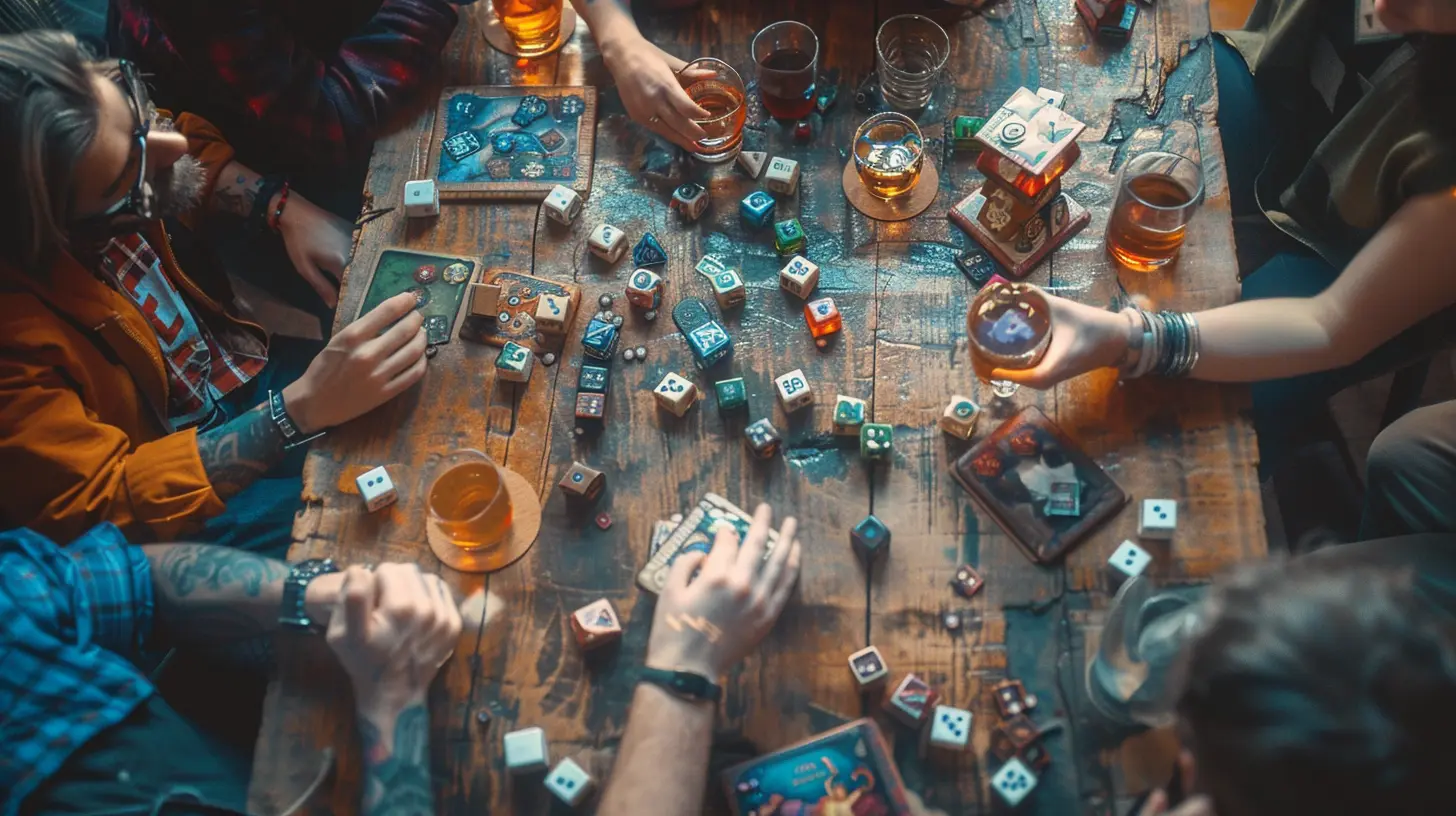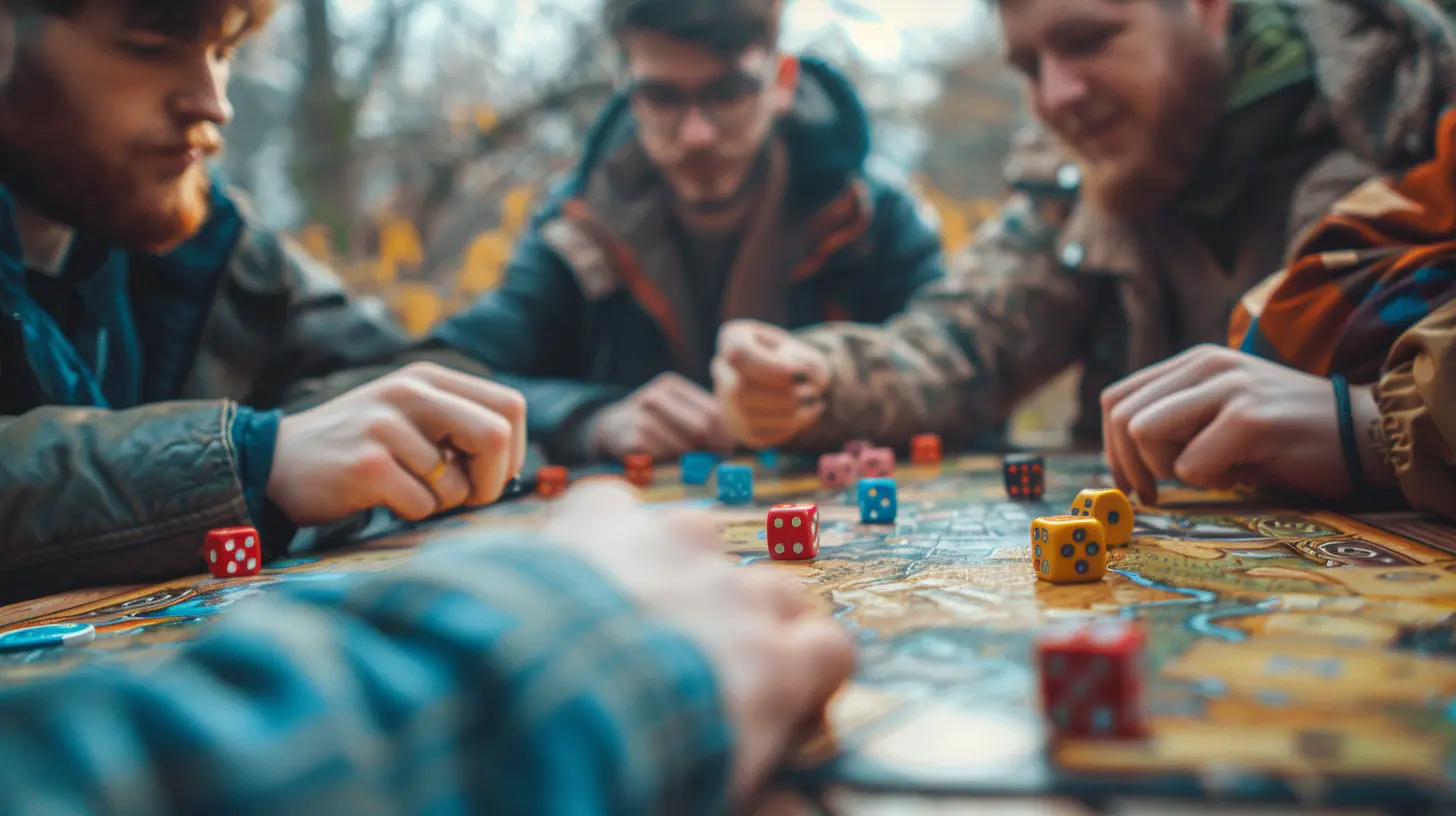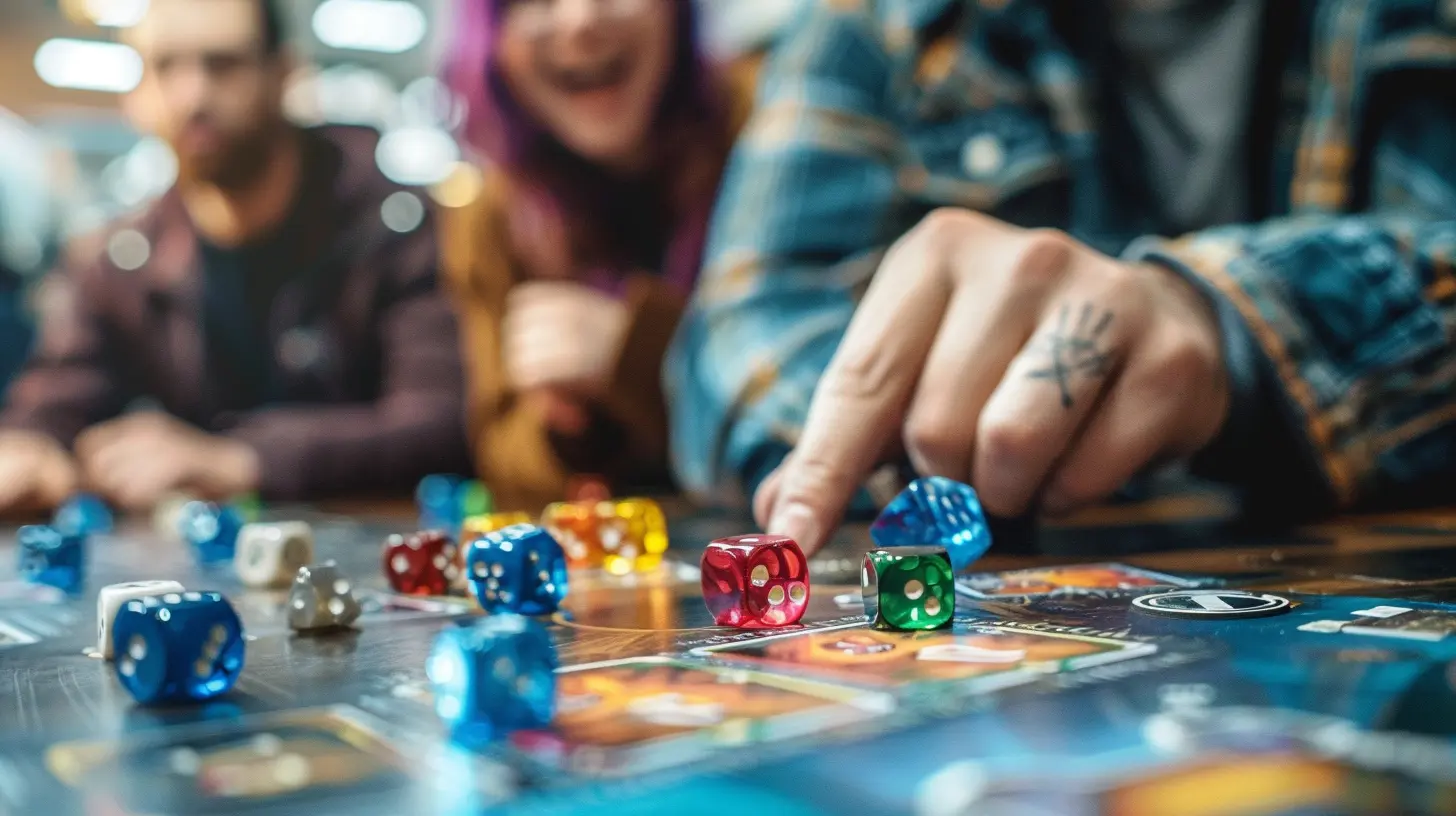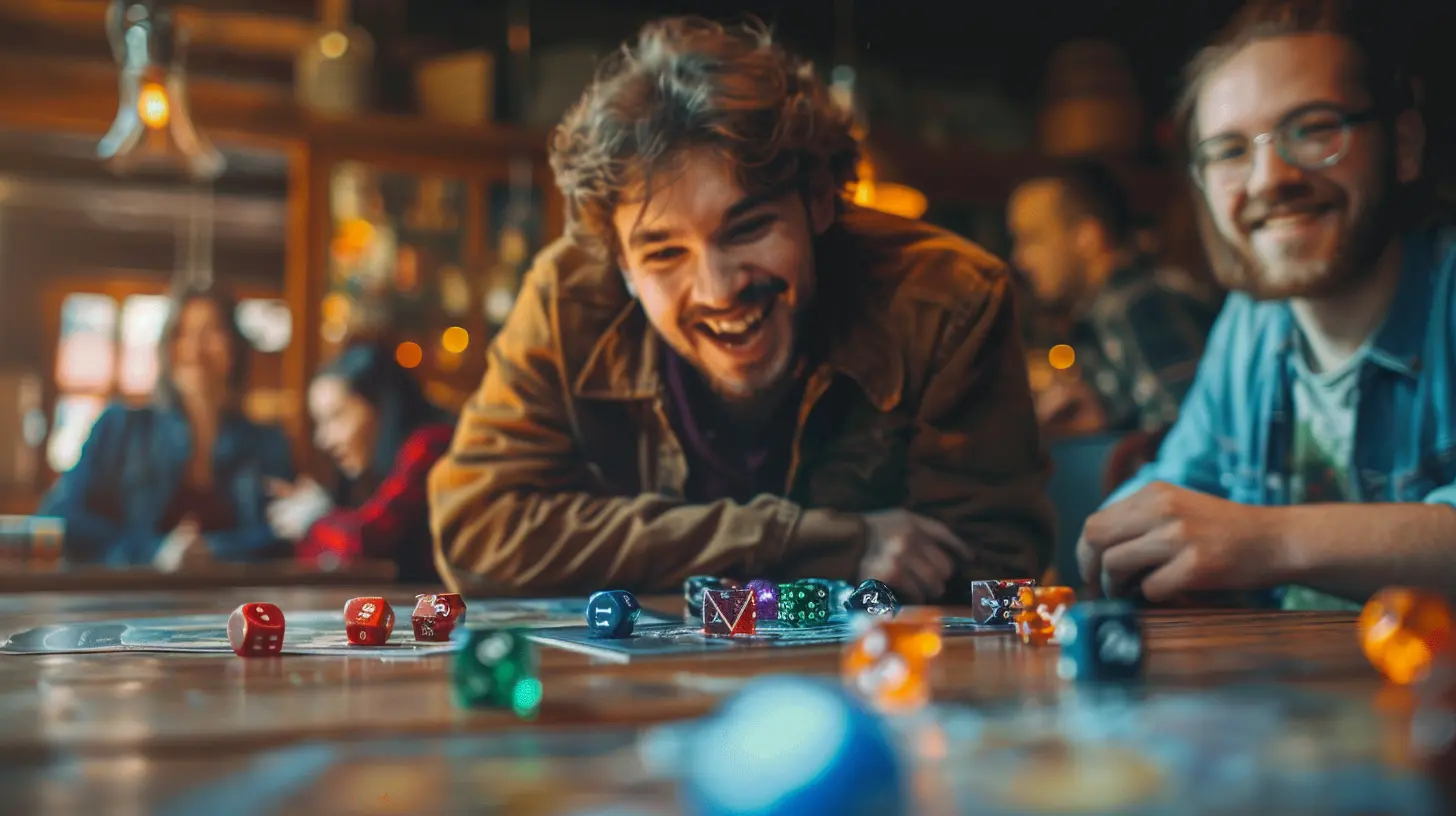The Benefits of Playing Tabletop Games with Friends and Family
19 October 2025
Let’s be real—life gets hectic. Between work, school, chores, and binge-watching the latest trending series (don’t worry, no judgment), it can feel like quality time with loved ones is slipping through the cracks. That’s where tabletop games come in—they're not just about rolling dice or dragging out old dusty boards. These classic and modern play sessions are actually loaded with surprising benefits for your mental health, social skills, and even your relationships.
So whether you’re a die-hard Monopoly strategist, a Cards Against Humanity jokester, or someone who gets way too into Settlers of Catan, grab a seat at the table. Let’s unpack why playing tabletop games with your crew is one of the most underrated (but epic) ways of spending time together.
What Exactly Are Tabletop Games?
Before we go too far, let’s clear up what we mean by “tabletop games.” These are any games played on a table—think board games, card games, strategy games, dice games, and even role-playing games like Dungeons & Dragons.They’re not limited by screens or Wi-Fi, and they thrive on human interaction. That’s the secret sauce. Whether you’re passing Go, building railroads, or bluffing your way through Poker night, the magic happens in real-time, with real people, face-to-face.
1. Strengthening Relationships (A.K.A. Bonding Like a Boss)
We live in an age where texting has replaced talking and scrolling has replaced hanging out. But nothing beats the feeling of sitting around a table, laughing, joking, and maybe throwing in a little (friendly) competition.Playing tabletop games strengthens connections—and it does it naturally.
A Shared Experience
Every game night becomes its own little story. Maybe you spent hours teaming up to escape a haunted house, or someone pulled off an impossible win. These shared moments build inside jokes, stories you'll retell for years, and trust between players.Quality Over Quantity
You don’t need a ton of time—just enough to sit down, unplug, and be present. That one hour of playing Uno or Clue might mean more than 10 hours of texting back and forth.
2. Boosting Mental Health (Yup, Games Are Good For Your Brain)
Ever notice how time flies when you’re deep into a game? That’s not just fun—it’s therapeutic.Stress Relief on Demand
Tabletop games offer a much-needed escape from real-life stress. When you’re focused on winning, strategizing, or just trying not to get outsmarted by your 10-year-old niece, your brain gets a break from worrying.It’s like meditation…if meditation involved dice and a little trash talk.
Encouraging Mindfulness
The best games pull you into the moment. There’s no room for doom-scrolling or overthinking what your boss said in that meeting. You're here, now, and completely engaged.
3. Sharpening Cognitive Skills (Without Realizing It)
Turns out grandma playing Bridge wasn't just killing time—she was staying sharp.Many tabletop games engage your brain in ways you won’t even notice. It's like sneaking veggies into your mac and cheese… you enjoy it, but it's still good for you.
Strategy and Planning
Games like Risk or Pandemic require thinking several moves ahead, adapting to other players, and managing resources. You’re practicing logic, analysis, and decision-making—basically a secret workout for your brain.Memory and Concentration Boost
Remembering rules, tracking moves, and keeping tabs on your opponents all help to keep your memory and attention sharp.And the best part? You’ll never once feel like you're doing homework.
4. Fostering Communication and Social Skills
Tabletop games actually demand you talk to people. Shocking, right?Whether you’re bluffing your way through a round of Mafia or teaming up to tackle Gloomhaven, you’re using—and improving—your communication skills.
Reading Emotions and Body Language
In games where bluffing and reading people are key, like Werewolf or Poker, you’re sharpening emotional intelligence without even realizing it.Practicing Conflict Resolution
Games often come with disagreement—who cheated, who misunderstood the rule, who’s hoarding all the resources. Settling disputes fairly helps build real-life conflict management skills.Also, let’s be honest—learning to lose gracefully is a life skill many still struggle with. Games offer a safe space to practice that.
5. Encouraging Teamwork and Cooperation
Not all games are cutthroat competitions. Some are cooperative, where you only win if you work together.Building a Team Mentality
Games like Forbidden Island or The Crew teach you to listen, coordinate, and support each other. Everyone contributes, and victory tastes sweeter when you celebrate it as a team.And if your kids or younger relatives are playing, they learn early the value of collaboration—way better than just watching animated lessons on YouTube.
6. Creating Traditions and Memories
The beauty of tabletop games is their reusability. You're not ticking off achievements in a digital world—you’re building real-world traditions.Weekly Game Nights
Set a day of the week as your dedicated game night, and just watch how it turns into an event everyone looks forward to. It's cheaper than going out and way more personal.Holiday Family Favorites
Ever play the same game every Christmas? Or have a tradition of a chaotic New Year’s Eve Uno tournament? These routines become nostalgic gold over time.7. Healthy Competition That Builds Character
There’s nothing wrong with a little rivalry, especially when it’s all in good fun. Some games are about knocking your best friend’s piece off the board, and honestly? That’s half the fun.Winning with Honor, Losing with Grace
Games teach you how to win without gloating and lose without sulking. And let’s admit it, both are critical life lessons.Humility, Patience, and Resilience
You won't always draw the right card or make the perfect move. Learning to deal with setbacks (in a controlled, safe environment) actually builds emotional maturity.8. Bridging Generational Gaps
One of the coolest things about tabletop games? Age doesn't matter.Everyone Plays, Everyone Connects
Grandparents, cousins, kids, teens, and adults all sitting at one table, yelling, laughing, and making memories together—it doesn't get much better than that.Games become a universal language that bridges awkward silences and generational gaps.
9. Unplugged, Undistracted Quality Time
In a world glued to screens, tabletop games force you to be present. No background Netflix, no text alerts, just people, laughter, and a shared goal.Real Connection in a Digital World
Phones down, dice up. This kind of quality time is rare and ridiculously valuable in maintaining healthy friendships and family dynamics.10. Affordable Entertainment That Lasts
Let’s talk dollars. A well-chosen board game offers hours (or even years) of entertainment for a one-time buy. Compare that to dinner out or movie tickets, and you start to see why board games are budget-friendly bonding gold.Plus, you don’t need tons of gear—just a table, a game, and some good company.
Final Thoughts: Tabletop Games Are a Game Changer
Whether you’re clearing space on your dining room table or dusting off that game shelf, one thing’s for sure—playing tabletop games with friends and family is so much more than just a way to kill time. It’s about connection, laughter, and making memories you’ll talk about long after the cards are packed away.So next time you’re tempted to scroll TikTok for hours, consider cracking open a board game instead. Your brain, your relationships, and your soul might just thank you.
And hey—if you end up flipping the Monopoly board because your sibling bought Boardwalk again... well, that’s part of the fun too.
all images in this post were generated using AI tools
Category:
Tabletop GamesAuthor:

Stephanie Abbott
Discussion
rate this article
1 comments
Harley Reed
Tabletop games strengthen bonds and create memories.
October 20, 2025 at 4:30 AM

Stephanie Abbott
Absolutely! Tabletop games foster connection and create lasting memories through shared experiences and teamwork.


